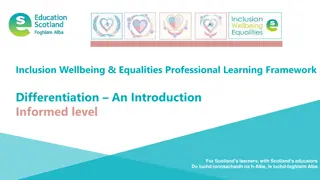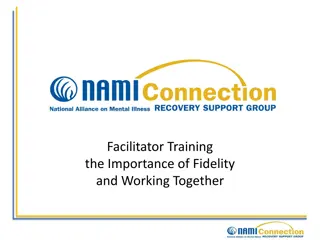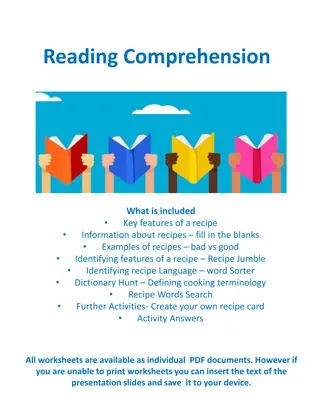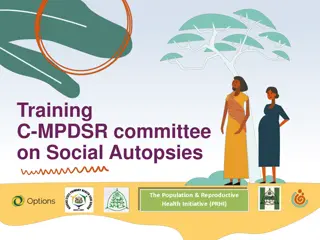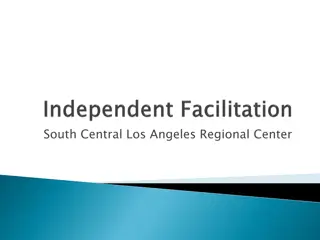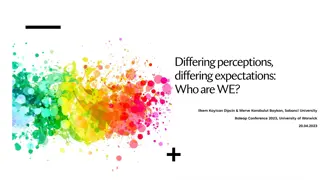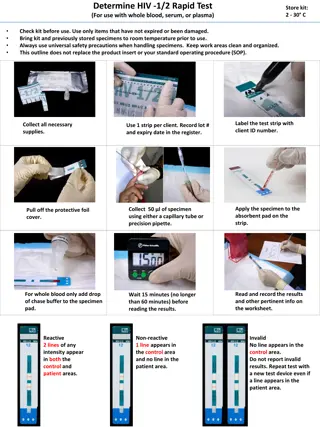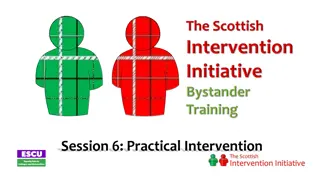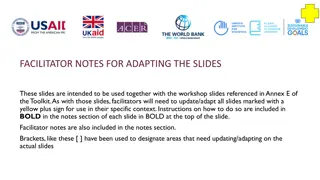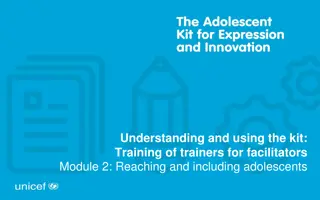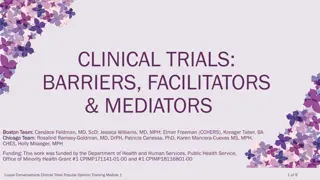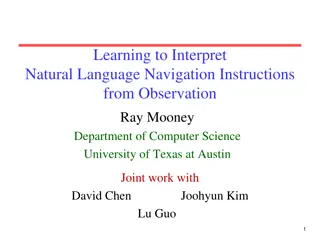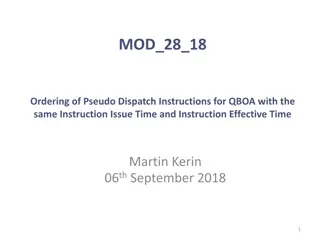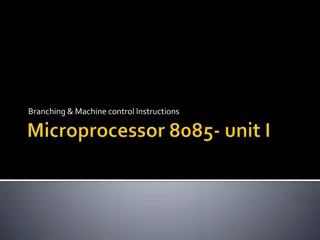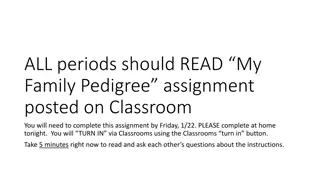INSTRUCTIONS FOR CONTENT FACILITATORS
This resource package provided by the Scholarly Integrity Initiative aims to facilitate group discussions on the responsible conduct of research and raise awareness. It includes core slide presentations, additional slides for flexibility, and guidance for content facilitators. Users are encouraged to engage in conversations, identify best practices, and enhance research culture based on integrity, collegiality, and service at UBC. The content covers topics like research records, scholarly integrity, and maintaining central research documentation. Users can adapt and share this resource under the Creative Commons Attribution 4.0 International License.
Download Presentation

Please find below an Image/Link to download the presentation.
The content on the website is provided AS IS for your information and personal use only. It may not be sold, licensed, or shared on other websites without obtaining consent from the author.If you encounter any issues during the download, it is possible that the publisher has removed the file from their server.
You are allowed to download the files provided on this website for personal or commercial use, subject to the condition that they are used lawfully. All files are the property of their respective owners.
The content on the website is provided AS IS for your information and personal use only. It may not be sold, licensed, or shared on other websites without obtaining consent from the author.
E N D
Presentation Transcript
INSTRUCTIONS FOR CONTENT FACILITATORS This slide package is provided by the Scholarly Integrity Initiative. Thank you for promoting conversations about, and raising awareness of, the responsible conduct of research. We hope that by facilitating group discussions though these materials, we can better understand our research and scholarly practices, identify best practices, and foster a strong and diverse research culture that embraces integrity, collegiality and service at UBC. In an effort to continuously improve, we would appreciate a few minutes of your time to provide feedback on this resource after you have used it. Please share your thoughts by completing this short survey. 1
HOW TO USE THIS RESOURCE There are two sections to this slide deck resource. 1. The first section is a core slide presentation. Use this to introduce concepts, discuss terminology, and generate discussion with your audience. 2. The second section includes additional slides that you can add to the core presentation, depending on the needs of your audience. Facilitator notes are provided with each slide. Before delivering this material, you should familiarize yourself with the Scholarly Integrity Policy and the relevant scholarly standards within your discipline. If you need additional support, please contact the Scholarly Integrity Initiative. 2
ADAPTING AND SHARING THIS RESOURCE This introductory slide deck is licensed under the Creative Commons Attribution 4.0 International License, which allows you to share and adapt this resource as long as you give appropriate credit, provide a link to the license and indicate if changes were made to the content. For more information about this license, please visit: http://creativecommons.org/licenses/by/4.0/ Please attribute to the Scholarly Integrity Initiative, Office of the Vice-President, Research & Innovation, The University of British Columbia. 3
RECORD-KEEPING The Scholarly Integrity Initiative HTTPS://RESPONSIBLE.RESEARCH.UBC.CA
INTRODUCTION What is a research record? What goes into the research record? Who owns the research record? How does it relate to scholarly integrity? 5
Maintaining an accurate and complete research record supports scholarly integrity by: Ensuring reproducibility and accountability in research Enabling others to verify the researcher s intellectual contribution Serving as supporting documentation in the event that the researcher must defend against allegations of scholarly misconduct 6
MAINTAINING A CENTRAL RESEARCH RECORD Why might we need to maintain a centralized research record? What are some best practices for keeping records? What are some additional considerations about record keeping in your discipline? 7
To maintain an accurate and complete research record we must be honest, consistent, and thorough in documenting the research process. What does this mean for us? 8
REFLECTING ON OUR RESEARCH PRACTICES What record-keeping standards do you adhere to? How do you organize your research materials, data and information for long-term access and retrieval? What steps do you take to ensure the security of your research records? 9
SUPPORT & RESOURCES Guides & Resources Nature: How to pick an electronic laboratory notebook UBC Library: Digital Preservation File Format Policy UBC Library: File Naming Guidelines Columbia University ReaDI Program: Good Laboratory Notebook Practices Further Reading UBC Graduate & Postdoctoral Studies: Documenting and Record Keeping Schreier, et al. (2006): Academic research record-keeping: best practices for individuals, group leaders, and institutions 10
RESEARCH RECORD A clear and organized set of information that captures all relevant details and information for reconstructing the research process. 13
CASE STUDIES 14
Blake is a new graduate student. In reviewing the research records, they were unable to identify the corresponding raw data that were previously published. Blake also couldn t locate the digital files for this missing data on any of the computers in the research group. They talk to a fellow graduate student about this situation, and the student tells Blake that they should be very concerned about the situation and that it should be reported. How should Blake proceed? 15 Used with permission. Adopted from American Physical Society Task Force for Ethics Education. Ethics Case Studies.
Alex is nearing the end of their studies and has started writing their dissertation. In order to stay focused and on-task, Alex decided to be proactive by gathering all of the relevant materials they will need from their research and conference notes to draft research paper and references. Alex was distressed to realize that many supporting excerpts and quotes they wrote down in the beginning of their studies were unreferenced and that they do not remember enough of the context to make sense of the notes they kept. What are some implications of this realization? 16


